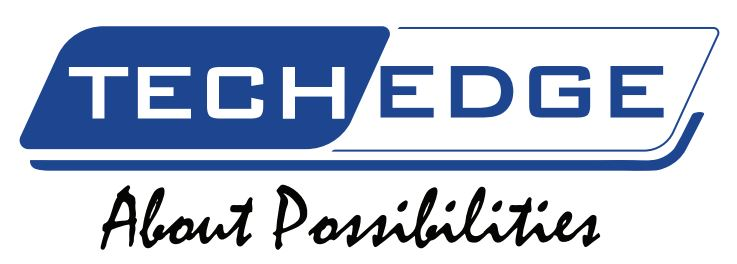Today’s fast-paced digital world is characterized by rapid advancements in technology, constant connectivity, and an increasing reliance on digital platforms and tools. Technology is evolving at an unprecedented rate, enabling new possibilities and disrupting traditional industries and way of doing business. Innovations such as artificial intelligence (AI), machine learning, blockchain, Internet of Things (IoT), and cloud computing are reshaping how businesses operate and how individuals interact with technology.
Organizations across industries are undergoing digital transformation to stay competitive and meet the evolving needs of customers. Digital technologies and data-driven strategies are being adopted to enhance operational efficiency, improve customer experiences, and drive innovation.
The fast-paced digital world requires businesses to be agile and adaptable. Market trends and consumer preferences can change rapidly, necessitating quick decision-making and the ability to pivot strategies. Embracing a culture of agility and continuous learning is vital for success in this dynamic landscape.
 Digitization is one of those areas that can benefit an organization making it more efficient and effective in its operations. Digitization refers to the process of converting analog information, such as text, images, audio, or video, into digital formats that can be stored, processed, and transmitted using electronic devices and computer systems.
Digitization is one of those areas that can benefit an organization making it more efficient and effective in its operations. Digitization refers to the process of converting analog information, such as text, images, audio, or video, into digital formats that can be stored, processed, and transmitted using electronic devices and computer systems.
It involves the transformation of physical or non-digital assets into digital data that can be easily accessed, manipulated, and utilized. For example, scanning physical documents, converting printed books into e-books, digitizing audio recordings, or converting analog video footage into digital formats. This process enables easier storage, retrieval, and sharing of information.
Key benefits of digitization
- Improved Accessibility: Digitization enhances accessibility to information and resources. Digital content can be stored in various formats and easily accessed using electronic devices such as computers, smartphones, or tablets. This allows for quick retrieval and sharing of information, regardless of geographical location.
- Efficient Storage and Preservation: Digital formats allow for efficient storage and preservation of information. Digital data can be stored in electronic storage systems, such as hard drives or cloud-based platforms, which take up less physical space compared to traditional paper-based storage methods. Additionally, digital data can be replicated and backed up to prevent loss or damage.
- Searchability and Indexing: Digitization enables efficient search and retrieval of information. Digital content can be indexed, tagged, and organized using metadata, making it easier to search and locate specific information or documents. This improves productivity and saves time compared to manually searching through physical files or documents.
- Easy Distribution and Sharing: Digital content can be easily distributed and shared electronically. With digitization, files can be sent via email, shared on cloud storage platforms, or published on websites. This facilitates quick and seamless sharing of information with colleagues, clients, or the public, enabling faster collaboration and communication.
- Data Analysis and Insights: Digitization allows for the analysis of digital data to derive valuable insights. Digital tools and technologies, such as data analytics, machine learning, and artificial intelligence, can process and analyze large volumes of digital data to identify patterns, trends, and correlations. This data-driven approach can support decision-making and drive business innovation.
- Cost Savings: Digitization can lead to cost savings in various ways. It reduces the need for physical storage space, minimizes printing and reproduction costs, eliminates the reliance on physical transportation of documents, and streamlines administrative tasks. Additionally, digitization can enable automation and process optimization, resulting in operational efficiency gains and cost reductions.
- Enhanced Collaboration and Workflow: Digitization facilitates collaboration and workflow efficiency. Digital platforms and tools allow multiple users to access and work on the same documents simultaneously, enabling real-time collaboration. Workflows can be streamlined through automation, reducing manual tasks and improving productivity.
- Scalability and Flexibility: Digital content is highly scalable and flexible. It can be easily replicated, shared, and adapted to different devices, platforms, or formats. This scalability and flexibility allow businesses to adapt to changing needs, reach wider audiences, and expand their digital presence.
- Environmental Sustainability: Digitization contributes to environmental sustainability by reducing paper usage and physical waste. It promotes a paperless environment and reduces carbon emissions associated with printing, transportation, and storage of physical documents.
Overall, digitization offers numerous benefits, including improved accessibility, efficient storage, searchability, collaboration, and cost savings. Embracing digitization enables businesses to leverage digital technologies, optimize workflows, and unlock the value of digital data for enhanced productivity and innovation.
As businesses evolve and adapt to an increasingly digital world, Key is to identify a partner such as Techedge that can facilitate a smooth transition to a digital document ecosystem that ultimately enhances collaboration, security, and compliance while future-proofing your business for success. Embracing document digitization will not only improve your organization’s productivity and efficiency but also position it as a leader in its industry, ready to tackle the challenges and opportunities of the digital age.

Recent Comments